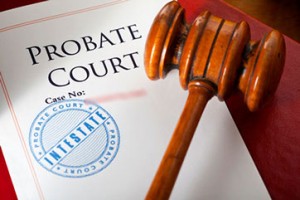FAQ – Frequently Asked Questions
FAQ Gurdin Law | Attorney C. Stephen Gurdin Jr.

FAQ Bankruptcy Procedures:
Must I produce tax returns before and after my bankruptcy?
YES You must provide the trustee and/or any creditor with copies of any federal tax return that you filed for the year prior to filing. If you do not comply with this request, the court may dismiss your bankruptcy case.
-
- You must also file copies of any federal tax returns filed during the case with the bankruptcy court.
- Any taxing authority may request dismissal of a bankruptcy case if you fail to file all required tax returns.
- Bankruptcy Documents Needed, CLICK HERE
Do I have to list all creditors on the bankruptcy Schedules?
YES You must list all your debts, with the name and address of the creditors. This is so creditors receive notice of the bankruptcy and get their fair share of any money paid to creditors. You may think that you should omit a creditor because you want to continue to pay the debt. This would violate the law, and it is unnecessary because you can always choose to pay a debt voluntarily, even though the debt has been discharged and there is no legal obligation to make payment. However, creditors are prohibited from taking any action to collect discharged debts.
Does all my debt get discharged?
NO Not all debts will be discharged through the bankruptcy, even if you have followed all of the Bankruptcy Code’s rules during your case. First, a bankruptcy case only discharges debts that you owed and listed at the time you filed the case, not those you incurred after filing the case.
In addition, even after bankruptcy, you will have to pay debts that are not discharged. Non-dischargeable debts include:
- Debts for income and property taxes.
- Debts to creditors you did not list in your bankruptcy paperwork.
- Domestic support obligations such as alimony and child support debts.
- Fines payable to any governmental unit, such as a city or state.
- Restitution imposed on you as part of a criminal sentence.
- Student loans.
- Other debts that may not be discharged include debts you may have incurred through fraud or by willful or malicious actions. An example of a debt incurred by fraud is a loan you obtained when you knew you could not repay. Some credit card use immediately before bankruptcy may be considered fraudulent, especially if you use the card to pay for “luxury” goods or services, such as a vacation. If the creditor does not ask the court to rule on these debts, they will be discharged.
What are the different kinds of bankruptcy?
There are four types of bankruptcy available to individuals:
- Chapter 7 (a two to three month process in which your property is sold to pay your debts);
- Chapter 13 (a three to five year process in which you pay a portion of your debts under a court-supervised repayment plan);
- Chapter 12 (like Chapter 13, but only available to family farmers and fishermen); and
- Chapter 11 (a more complex process used primarily by business debtors, but sometimes by individuals with substantial debts and assets).
The two most important types of cases for consumers are chapter 7 and chapter 13. Both provide for some possible payments to creditors, a discharge for you and supervision by a Trustee appointed by the court. In both types of bankruptcy, most creditors must stop efforts to collect debts after you file your case. This protection is called the “Automatic stay”
Chapter 7 involves surrendering some of your property in return for a discharge of many of your debts. The trustee sells this property and pays your creditors. In chapter 13, you keep your property but must commit to a three- to five-year repayment plan. You then obtain a Discharge of most of the debts not paid in the plan.
FAQ Bankruptcy Myths:
Myth: You will lose everything, including your property, if you file for bankruptcy.
This is False. Most bankruptcies that are filed are “no asset” cases, meaning the debtor possesses no substantial assets that can be taken by the bankruptcy court. However, if you do possess property, there are “bankruptcy exemptions,” which are assets that are exempted from liquidation, which is when assets are used to repay creditors. Attorney Gurdin can help you determine what is exempt so that you can keep the possessions you hold dear.
Myth: You cannot obtain credit or a loan for 10 years after bankruptcy filing.
Wrong Again. People who have completed Chapter 7 bankruptcies frequently have access to low-limit credit cards shortly after their debts are discharged. People who are doing a Chapter 13 payment plan are able to borrow money or apply for credit anytime.
Myth: You cannot file for bankruptcy if you work.
Not True. Many people who file for bankruptcy are employed. Also, in order to fund a Chapter 13 payment plan you must have some form of income coming in.
Myth: Filing for bankruptcy means you have failed.
Absolutely False. Most bankruptcies occur to circumstances entirely out of one’s control, such as a job loss or illness. Bankruptcy is a useful tool, put in place to help people stat over financially. Let this process work for you.
Myth: If I file Bankruptcy, it will negatively impact my job.
Absolutely False. In fact, based on the law, no employer can terminate or discriminate against an individual for filing a bankruptcy.
Myth: If I file Bankruptcy, it will be listed in the newspaper.
Not True. Bankruptcy case filings are not listed in the newspaper or public register; therefore, your friends, family, co-workers, and neighbors will not know!
Myth: You’ll Lose Everything In Bankruptcy.
Not True. If you file for bankruptcy you can rest assured knowing you won’t be left out on the street with nothing to your name. Most property in a bankruptcy filing is exempt and debtors rarely lose anything at all. Assets considered exempt vary from state to state, but your house, vehicles, and clothes are safe. Even the items that aren’t exempt creditors often don’t want. Your flat screen TVs and smartwatches are worthless to a creditor. Many assets either have little intrinsic value or are overly encumbered with debt.
Myth: Married Couples Will Both Have To File.
False. Assuming you and your spouse both need to file for bankruptcy is assuming you both share the liability for the debt. It’s not unusual for one spouse to have a significant amount of debt solely in their name. In these cases it’s best to file for bankruptcy alone. However, if debt is shared between spouses then both should file. If both spouses are liable for debt and only one spouse files, then creditors can demand payment in full from the spouse that didn’t file.
FAQ What is Probate?
The term probate is as old as dirt. It comes to us from the Saxon law which used the term Probate to mean to claim a thing as one’s own. In more modern law is comes from the Latin term onus probandi, literally to make proof or the burden or duty of making proof. Now the term is used to refer to the act or process of proving a will and distributing the assets of a deceased person (the decedent). If the decedent has a will, and names a personal representative, the person named is called an executor. If there was no will, or the will did not appoint a representative, or the person appointed has died, the person appointed is called an administrator. The administration of the decedent’s assets is required whether there is will or not. This process has been simplified in recent years, and in most cases, can be accomplished quickly and at reasonable cost. If the estate is administered through such a proceeding, the end result is binding on all of the heirs and other parties in interest. This can be contrasted with administering assets without the formality of a probate proceeding, which can be set aside in a later court proceeding.
Many types of property pass outside of the probate estate, so that the costly and legally complex steps to avoid probate are unnecessary. Many small estates can be raised, administered and closed within one year or less. Transferring assets to avoid probate frequently creates complex tax issues and costs associated with tax filings, transfer fees, and tax due on the transfer or due at death as part of the total tax calculations (which are frequently overlook by those proposing such steps). FAQ Probate avoidance can be useful tool for reasons other than tax avoidance, such as assuring control, and protecting the asset as well as the owner’s interest in it which might be compromised due the age of the owner, and to the acts of unscrupulous persons. Such steps should only be undertaken with the assistance of competent and trusted legal counsel.
What is estate planning and do I need to do it?
Yes. Estate Planning is the process of anticipating and arranging for the disposal of an estate during a person’s life. Estate planning typically attempts to eliminate uncertainties over the administration of a probate and maximize the value of the estate by reducing taxes and other expenses. Income, gift, and estate tax planning plays a significant role in choosing the structure and vehicles used to create an estate plan.
Estate planning involves the will, trusts, beneficiary designations, powers of appointment, property ownership (joint tenancy with rights of survivor-ship, tenancy in common, tenancy by the entirety), gift, and powers of attorney, specifically the durable financial power of attorney and the durable medical power of attorney.
FAQ What is Business Law?
 It is the body of law that applies to the rights, relations, and conduct of persons and businesses engaged in commerce, merchandising, trade, and sales. It is often considered to be a branch of civil law and deals with issues of both private and public law.
It is the body of law that applies to the rights, relations, and conduct of persons and businesses engaged in commerce, merchandising, trade, and sales. It is often considered to be a branch of civil law and deals with issues of both private and public law.
FAQ – Frequently Asked Questions
How Do I Rebuild My Credit After Bankruptcy? | Are There Any Exemptions When Filing Bankruptcy? | How Long Does It Take To Get Out Of Bankruptcy? | We Barely Have Any Money Left After Our Bills Are Paid. What Can We Do? | What If You Can’t Exempt Your Property? | What Does a Bankruptcy Attorney Do? | Will My Bankruptcy Payment Be Affordable?


